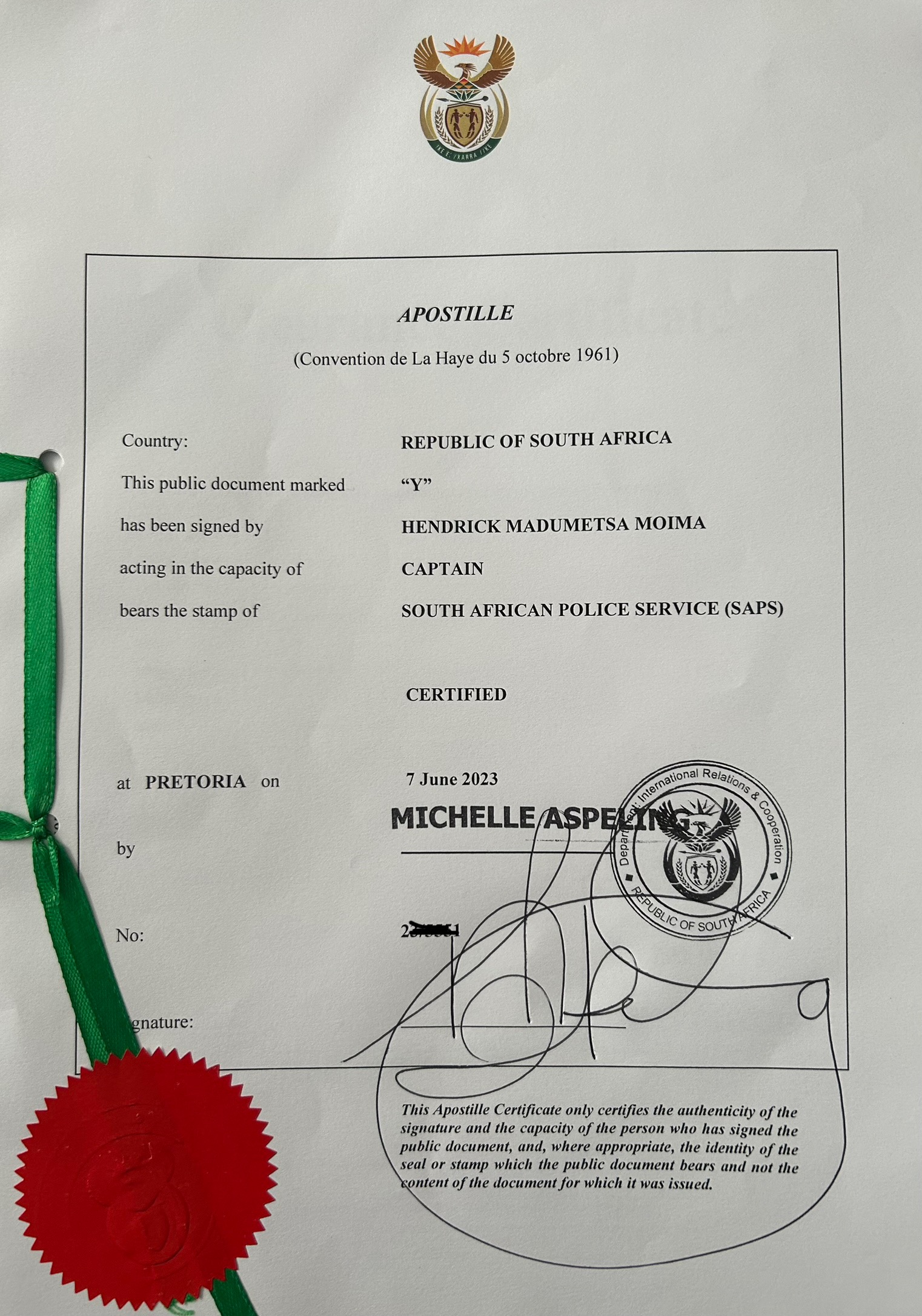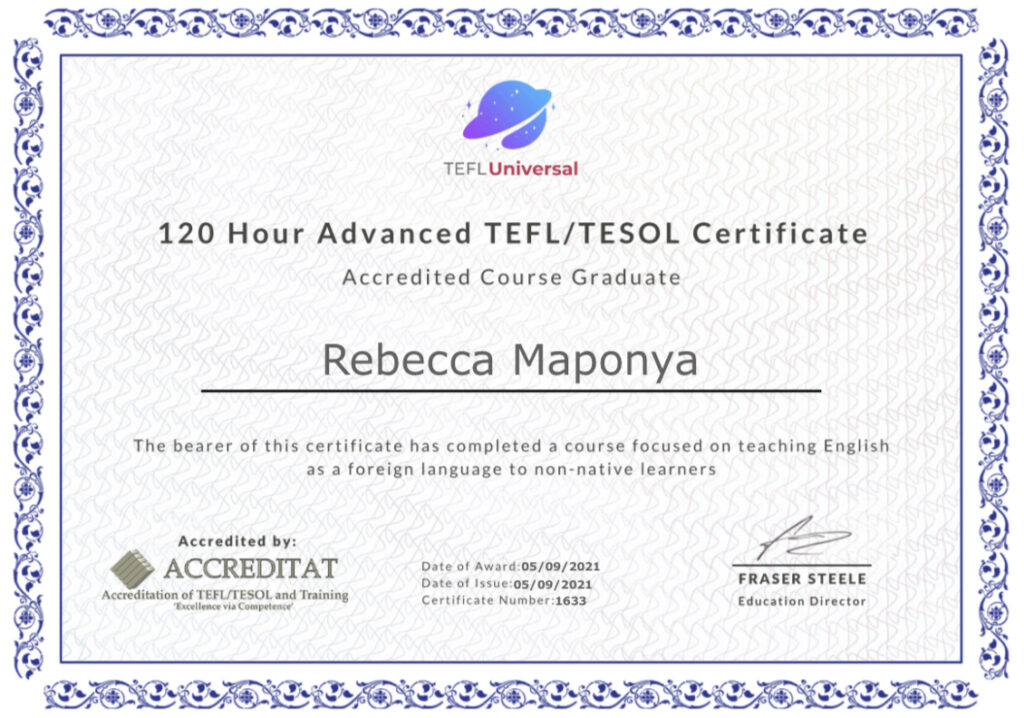Documents required for South Africans to teach English in South Korea (Hagwon edition)
Now that you have done your research and have made a decision, you will then need these documents to teach English in South Korea. This post will guide South African citizens in gathering all the documents required by the South Korean Embassy. I mention the South Korean Embassy specifically because your chosen school will send these documents to immigration for your E2 visa. An E2 visa allows qualified South Africans to teach English in South Korea.
The following section explains each document, how you can obtain it, the cost of obtaining it and the estimated timeline between application and finalisation. The South Korean Embassy requires all these documents in the early stages of a visa application.
Please note that only applicants with a BA or higher will be eligible to apply. The following are all five important documents to teach English in South Korea.
- Apostille PCC – Police Clearance Certificate
- South African Passport
- SAQA Verification letter
- Apostille bachelor’s degree
- TEFL/TESOL/CELTA certificate
STEP 1: POLICE CLEARANCE CERTIFICATE (PCC)
Please note: the following is only an explanation for obtaining just a PCC. I will explain the apostille process of the PCC after the bachelor’s degree stage: Step 3.
Do not mistake the PCC for a criminal record check. A PCC serves official and international purposes, whereas a criminal record check is mainly for domestic use and may not fulfil all legal or official requirements. You obtain the PCC document solely in Pretoria at the SAPS Criminal Record Centre located at 14, Bothongo Plaza West, 271 Francis Baard St, Pretoria, 0002, South Africa.
The first step is to visit your local SAPS and book an appointment for fingerprinting. On the day of your appointment, you have to pay R180 for the police to assist you in recording your fingerprints. From here there are three ways you can go about it.
Option 1. If you live close to Pretoria.
You can request this document to be handed to you and personally submit the fingerprints taken at your local SAPS to the SAPS CRC in Pretoria Central. This option means you will wait 2/3 weeks from the day you submit your documents in Pretoria to when your PCC will be ready for collection. You will receive an SMS confirmation. NB: The 2/3 weeks excludes the time it takes you to book an appointment with your local SAPS to record your fingerprints.
Advantage: you did it yourself, and there is a fast turnaround time. Disadvantage: none.
Option 2. Sending your documents using the SAPS.
Once your fingerprints are recorded at your local SAPS and the R180 fee is paid, you can opt to have the local SAPS send your fingerprints to the CRC in Pretoria. This would allow you to collect the finalised PCC from your local SAPS.
Alternatively, you can choose to have your PCC delivered directly to your home or desired location via courier service instead of your local SAPS. You will be responsible for the courier delivery fee to your selected location, provided it is not your local SAPS. The timeline for this can range from 6-8 weeks for various reasons.
For example, if you live in a busy town, your local SAPS could get a lot of PCC applications in one week which means they courier applications to Pretoria regularly. If you live in a less busy town, some local SAPS wait until they have a certain number of applications to send them to Pretoria. These reasons affect the PCC turnaround time. Advantage: your documents will be safe and secure with the SAPS, and there is little room for error. Disadvantage, longer turnaround time)
Option 3. Send the verified PCC to Postnet Brooklyn
This is after it has been to the CRC. This speaks more on Option 2. When applying for your PCC at your local SAPS, choose to have it couriered to Postnet Brooklyn via a courier service. This will make it more convenient to have your document in one place when you send your document to DICRO. I will talk more about this in Step 4.
Advantage: Your documents will be gathered in one place, and Postnet Brooklyn can send the PCC and verified degree to DIRCO for you (as outlined in Step 4). If you opt to do a Walk-in at DICRO, you can still go to Postnet Brooklyn and ask for your documents there, then proceed to go to DICRO. Disadvantage: there is a cost implication with sending it through Postnet and there is a longer turnaround time which depends on how fast you move.
Option 4. Using a proxy.
It is the option I went with as I was in Cape Town. Once I had taken my fingerprints at my local SAPS and paid the application fee, I went to Postnet and overnighted my fingerprints to someone close to CRC in Pretoria. The person then submitted my fingerprints for me. This means my 2/3 weeks started the moment the person submitted my application at CRC in Pretoria. Advantage: saves you the travel to Pretoria if you don’t already reside there. Disadvantage: there is a cost implication to using a proxy such as overnight courier of fingerprints and longer turnaround time if your proxy does not submit your fingerprint immediately when the courier arrives.

STEP 2: SOUTH AFRICAN PASSPORT
You need a valid South African passport for you to travel anywhere outside of South Africa. You will obtain this document at your local home affairs office. If you don’t have a passport yet, obtain one as soon as you’ve decided to move to Korea. The most efficient way I know is going to the home affairs website and making an online application.
A passport will cost you R600. This passport will therefore be valid for 10 years. After making an application, you will wait 2- 4 weeks for your passport to be finalised and ready for collection.
Alternatively, you can physically go to your nearest home affairs, pay R600, and do the application there. It will take between 2- 4 weeks for finalisation and collection.

STEP 3: VERIFIED BACHELORS DEGREE
Amongst the most important documents to teach English in South Korea on an E2 visa is a bachelor’s degree. This can be a three-year or four-year bachelor’s degree. Three-year diplomas are not accepted! Some recruiters do not accept an advanced diploma and some do, you may apply with an advanced diploma, but I would advise you to clear this up with your recruiter first.
For you to get an Apostille bachelor’s degree you need to first send a copy of your degree certificate and consent letter to the South African Qualifications Authority (SAQA) to be verified at a cost of R160. The email to send to is verificationsletter@saqa.co.za. SAQA will verify with your university/institution that you did indeed complete the said qualification at the institution. Once SAQA has verified the degree, they give you a verification letter. You will send the letter to the Department of International Relations and Cooperation to be apostilled (DIRCO).
It will take approximately 25 working days for SAQA to verify and send you an original hard copy of your verification letter. You can arrange for the verified SAQA degree and verification letter to be sent to Postnet Brooklyn or a location of your choosing. Your documents will be sent to PostNet Brooklyn. This will take about 6 weeks

STEP 4: APOSTILLE BACHELOR’S DEGREE AND PCC AT DIRCO
Once you have your PCC and degree with a verification letter, you can now send them to DIRCO for them to get an apostille. These two documents are usually the most time-consuming for people who do not live in Pretoria. More details will be elaborated below. Different cost implications depend on where you live and the means you choose to go about.
If you live in Pretoria:
If you live in Pretoria or can travel to Pretoria, you can submit your PCC and verified degree to DIRCO directly. Your documents will be apostilled on the same day. However, formal communication from DIRCO states you can only do this on Mondays, Tuesdays, Thursdays and Fridays between 8:30 and 12:30. You cannot have someone submit these documents on your behalf if you want them to be completed on the same day. Bonus, this option is Free!
If you do not live in Pretoria:
If you do not live in Pretoria or cannot travel to Pretoria, you will have to use agents or courier companies like Postnet Brooklyn to submit your documents. This option can take longer. An agent can be a courier company that does DIRCO runs for people. They submit documents (PCC and verified degree with verification letter) to DIRCO for you. Walk-in at DIRCO is free, however, agents/courier companies charge a fee for this service The cost for these agents varies. Postnet for example costs approximately R500. Once these agents submit your documents, it takes 8 – 10 weeks for processing. During this time, you will not receive any update on your submission until your documents are ready for collection.

STEP 5: TEFL CERTIFICATE
A TEFL certificate is sometimes included in documents to teach English in South Korea as an unqualified teacher (i.e. you do not have a teaching degree). Certain hagwons do not ask for it, but it is highly advised to prepare one as it is not a complicated document to obtain as compared to the others mentioned above. This certificate gives you the general foundational knowledge of teaching English as a foreign language. Most TEFL certificates can be completed over 1 – 7 days depending on how fast you study for it. There are so many companies that provide this certificate.
Here are some examples of the organisations that provide TEFL certifications
1. TEFL Universal https://tefluniversal.com/ref/EBSA_24/
2. Teacher Record https://teacherrecord.com/tefl-certificate
3. TEFL on the beach https://teflonthebeach.com/about/
4. BEE TEFL https://beetefl.org.za/courses/tefl-certificates/
Putting together documents to teach English in South Korea does not end here. However, these are the most important documents you need to start the process. Once you ensure that you have all these documents you are ready for the next steps in your journey of being an English teacher in South Korea. I cannot stress more about doing as much research as possible about the life, challenges and great things about teaching English in South Korea. Our blog is only one perspective on teaching English in South Korea. Many other people on social media platforms share different perspectives on this topic. Look out for more articles that will assist you with your journey of being an English Teacher in South Africa. The next steps after document preparation are preparing for an interview and obtaining your visa issuance number.


Leave a Reply